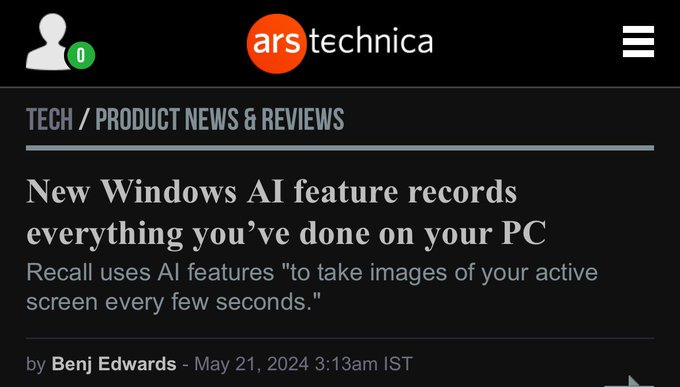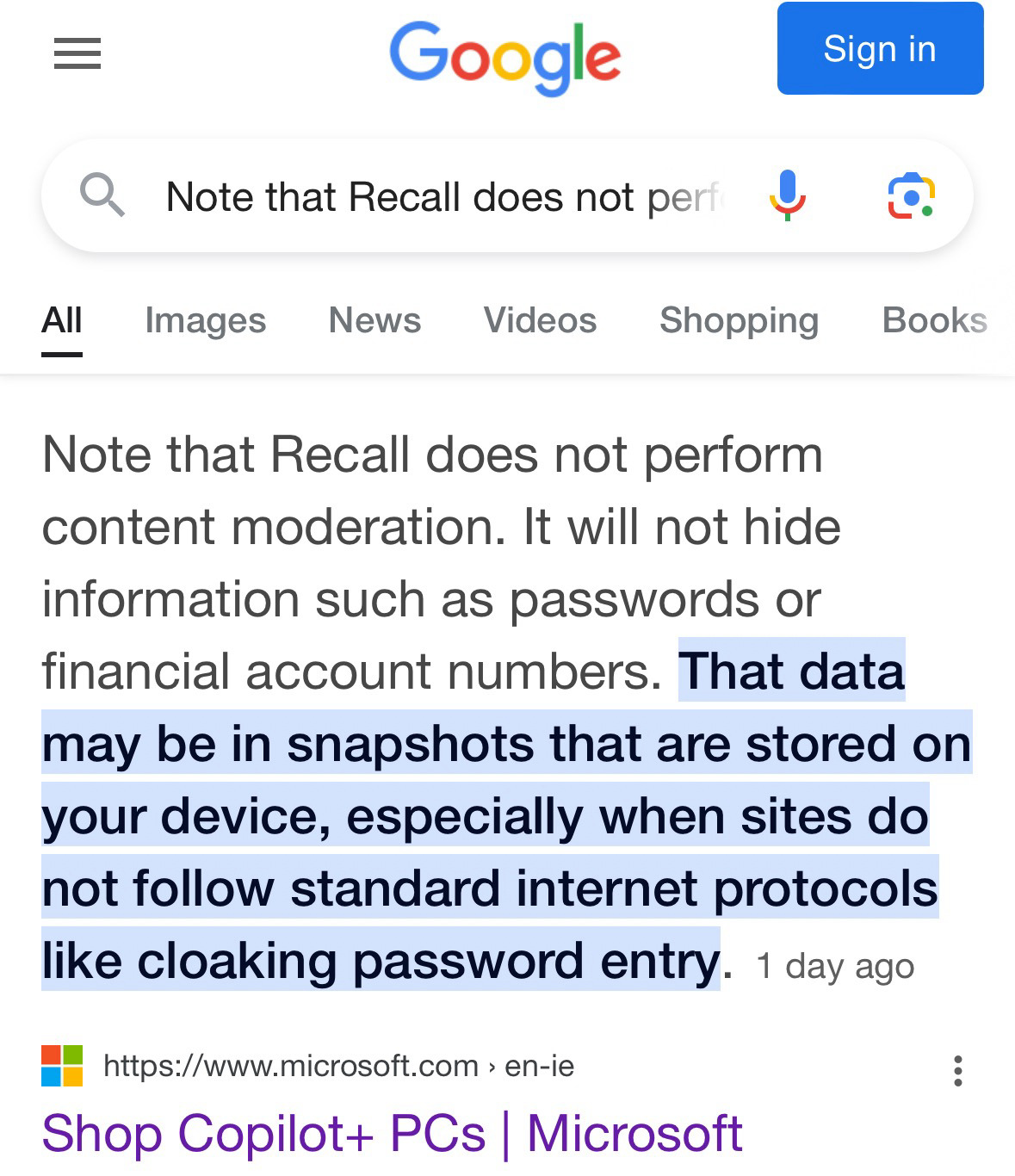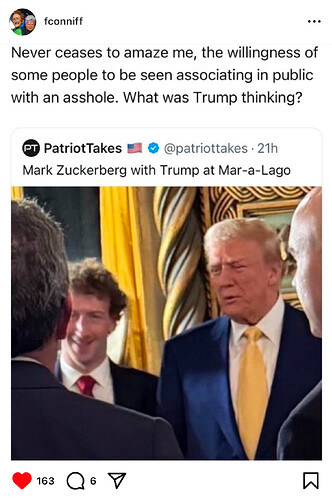I believe them! ![]()

I think this goes here.
That’s gonna mess up the rotary snowploughs.
On the other hand, the predators are clearly us: Individual people doing galaxy-brain bad-faith readings of other people’s banal posts for the juice and swarms of people looking for ideological opponents to mob, largely as a way of claiming or defending quasi-spatial territory: This is ours, not yours. We don’t do that here.
There are also the industrialized battalions running variously sophisticated ops to make the “public conversation” look like something it isn’t—to accelerate discord, to fake overwhelming support or opposition for an entity or idea, to make a group look stupid or dangerous-and-therefore-worthy-of-extermination, often by pretending to be a member and posting stupid or dangerous things. (I’m linking to old stories, but these campaigns have only revved up, globally, since then.)
If you believe that the shape of the mega-platforms has no bearing on these specific, internet-optimized antisocial behaviors—if you think that’s just how people are—there’s genuinely not much to do about the PvP stuff. You can ban some fake accounts, build teams to look out for particularly successful covert influence campaigns, and give end-users rudimentary safety tools for when the mob turns on them, but beyond that, well. Can’t fix people problems with software.
If this truly is the case—if the only way to improve our public internet is to convert all humans one by one to a state of greater enlightenment—then a full retreat into the bushes is the only reasonable course.
But it isn’t the case. Because yes, the existence of dipshits is indeed unfixable, but building arrays of Dipshit Accelerators that allow a small number of bad actors to build destructive empires defended by Dipshit Armies is a choice. The refusal to genuinely remodel that machinery when its harms first appear is another choice. Mega-platform executives, themselves frequently dipshits, who make these choices, lie about them to governments and ordinary people, and refuse to materially alter them. But in the Dark Internet Forest, the mega-platforms and their leaders are missing from the frame except as shadowy super-predators—the equivalent of Liu’s inevitably annihilating aliens.
In truth, the mega-platforms and their pocket-warlord leaders fell into their roles largely by chance and have since attempted to rule as though extraordinarily consequential global rulemaking and governance by a handful of US companies built to exploit human feeling for financial gain were a sensible way to arrange the world. Facebook was born from a website made for elite students to rank their classmates’ sexual attractiveness; Twitter was a watercooler where bored office workers could get attention by telling jokes in public. It’s as if 3M’s accidental invention of Post-It notes while failing to make space glue landed them a UN veto.
The dangers of the situation are obvious and real, but it matters that we remember that the world’s big platforms are steered by not by shadowy forces, but by teams of gold-rush-addled dorks whose sometimes-well-meaning employees are stuck frantically LARPing world government on internal forum software.
It’s equally important to remember that the patterns we’ve experienced on mega-platforms are not the only way to do networks but the result of specific combinations of under-thinking and malign commercial pressures—and that the currently ascendant systems are not inevitably annihilating forces, but legal and financial constructs that can be brought to heel, forcibly reconfigured, or just replaced. Keeping these basic facts in mind is oddly difficult, because there’s so much money involved, and money is a spell for blurring the truth.
And whichever of the companies comes out on top, the venture capitalists win.
Email’s been here for years. But the reason Substack wants you to call your creative work by their brand name is because they control your audience and distribution, and they want to own your content and voice, too. You may not think you care about that today, but you will when you see what they want to do with it.
I know you think you have control over your subscribers on Substack. But understand this: every single new feature Substack releases, from their social sharing to their mobile apps, is proprietary and locks you into their network. They don’t let your writing live on your own website or domain under your control unless you pay them for the privilege. And it’d be a shame if something happened to those subscription dollars you’re counting on, wouldn’t it? Even when you say “but my readership is growing!” know that most new subscribers come from other writers referring their readers to you. Somehow… Substack wants credit for those writers making that choice? Even though it was your writing that inspired it? That’s not some magical network effect thanks to Substack! That’s just the internet, working as it was supposed to.
Links are powerful — that’s why Instagram and Twitter and Threads punish and limit them, and why Substack tries to take credit for them. And that’s why “wherever you get your podcasts” is such a radical concept — like email, it’s a medium that the tech tycoons don’t, and can’t, own. People can read your writing “wherever they get their email”.
We constrain our imaginations when we subordinate our creations to names owned by fascist tycoons. Imagine the author of a book telling people to “read my Amazon”. A great director trying to promote their film by saying “click on my Max”. That’s how much they’ve pickled your brain when you refer to your own work and your own voice within the context of their walled garden. There is no such thing as “my Substack”, there is only your writing, and a forever fight against the world of pure enshittification.
FTA: Digital Coercion
This.
I’m glad that DHL was brought up for some pillory, they have taken heat in ![]() for their hidden fees. I told one
for their hidden fees. I told one ![]() vendor I dealt with that I would sooner fly over in person to pick up my order than deal with DHL again (DHL sent me an invoice for their extra fees that exceeded the shipment value; I just declined the package).
vendor I dealt with that I would sooner fly over in person to pick up my order than deal with DHL again (DHL sent me an invoice for their extra fees that exceeded the shipment value; I just declined the package).
I’ll use digital services, but I’m happy to get obnoxiously, arbitrarily, self-interested when I choose what I do and do not use.
The pizza places I use have good web sites; I’ll never touch the apps. McPukes: the friendly young counter attendant will take my order, thank you, not your touch screen or app. Happy to use Costco’s self checkout (in ![]() we don’t have SWAT teams checking grocery receipts in the parking lots), but I will take my time and pack my stuff carefully. Too slow? Tell the manager to dock my pay.
we don’t have SWAT teams checking grocery receipts in the parking lots), but I will take my time and pack my stuff carefully. Too slow? Tell the manager to dock my pay.
Literal definition of spyware:

Also From Microsoft’s own FAQ: "Note that Recall does not perform content moderation. It will not hide information such as passwords or financial account numbers. ![]()

foxofninetales
Because this has mostly been talked about with Windows 11, heads-up that this installed itself on every Windows 10 computer in our house with this week’s update.
For more about this, and how to get rid, click Dorothy’s link up top
ETA:
Didn’t realize the OP was from May, but it still seems important…
WTF. It is a disaster about to happens. I bet there are dozens of hackers working in clever ways to exploit this “feature”.
Arrived a little late at the party…


